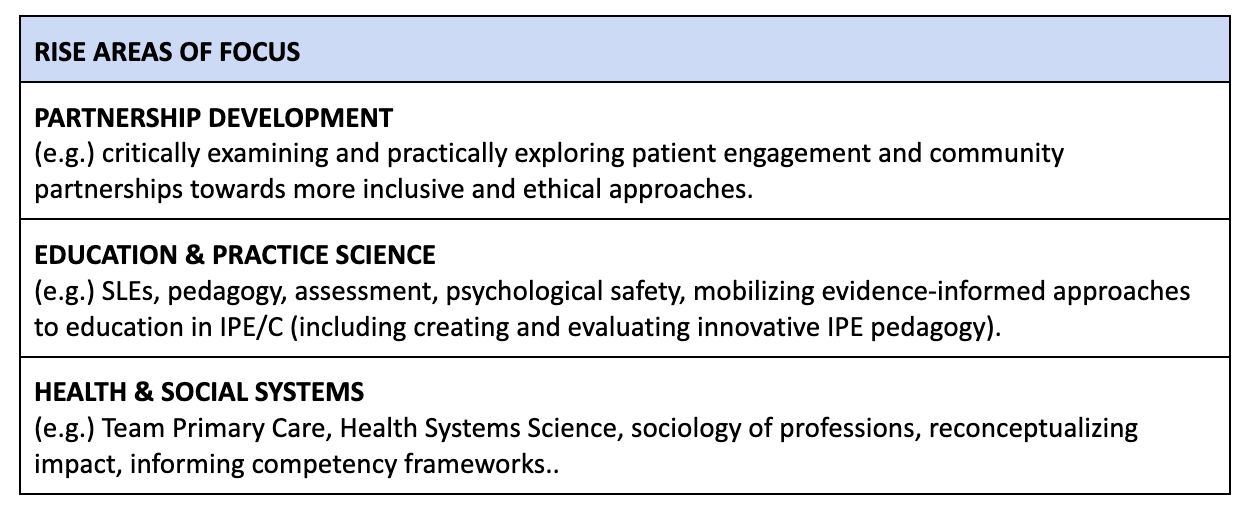Mobile Menu
- About Us
- Curriculum
- Professional Development
- Research & Innovation
- Community & Partnerships
- Tools & Resources

What is RISE?
The Centre is committed to Research integration, Innovation, Scholarship & Evaluation (RISE). The RISE portfolio ensures that CACHE is continually engaging in knowledge mobilization.
Knowledge mobilization focuses on moving knowledge into active service for the broadest possible good. In this definition, knowledge refers to experiential and research knowledge. Knowledge mobilizers include organizations and people embodying multiple roles and includes practitioners and researchers of diverse backgrounds (van der Wey in Fenwick 2012).
To us, knowledge mobilization values all forms of well-considered knowledge and is a process of relationship building for knowledge creation, informed action, and knoweldge sharing. CACHE is responsive to the needs of learners, educators, and health workers and committed to enacting collaborative processes through knowledge mobilization. Knowledge must be meaningful and accessible in order to be useful. In our multi-directional knowledge mobilization ecosystem, values from communities and questions from practice will inform the Centre’s research and innovation, the products of which will directly influence our policies, pedagogies, and practices.
What knowledge does CACHE mobilize?
CACHE's focus continues to be capacity building and leadership in collaborative healthcare and education. We aim to effectively harness diverse forms of knowledge into needed action within and across organizational boundaries. CACHE primarily mobilizes education knowledge of 3 “types”:
RISE Areas of Focus
CACHE members may partner, support, or lead projects and initiatives in alignment with these RISE areas of focus. The areas of focus are developed based on CACHE’s strategic plan, environmental scans of related strategic plans, and work in which team members are interested and engaged.
CACHE’s RISE areas of focus align with the Centre’s vision of Learning Together for a Healthier World and aspirations of: Including by redefining teams and collaboration through meaningful inclusion and representation; Integrating curricula, knowledge, and practice by connecting people, places, and programs; and Inspiring and leading collaboration through partnerships and innovation.

Learn more about: